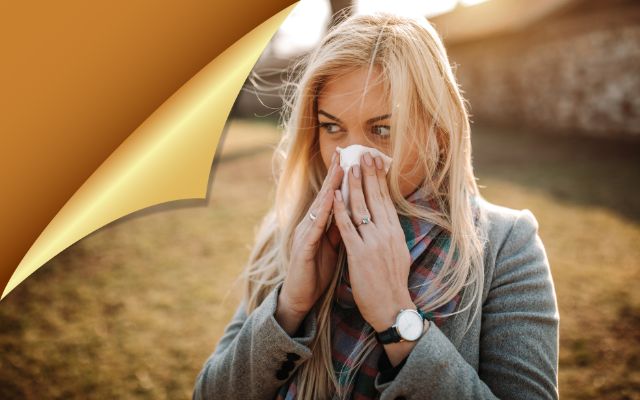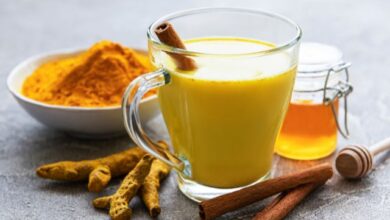Severe Seasonal Allergies: Best Medication And Treatment

Hay fever refers to a Severe seasonal allergies(allergic rhinitis) that develops during a specific season. According to the American Academy of Allergy, Asthma, and Immunology, about 8% of Americans suffer from it.
When your immune system overreacts to an external allergen, such as pollen, you have hay fever. An allergen is a substance that causes an allergic reaction.
Pollens from wind-pollenated plants, such as trees, grasses, and weeds, are the most prevalent allergies. Pollen from insect-pollinated plants is too heavy to stay in the air for lengthy periods of time, therefore it’s less likely to cause an allergic reaction.
Hay fever is named after the hay-cutting season. Historically, this activity took place during the summer months, when many people were experiencing symptoms.
These are less common in the winter, but allergic rhinitis can occur at any time of year. Pollen from different plants is released at different periods of the year.
You may suffer this in more than one season depending on your allergy triggers and where you live. Indoor allergens, such as mold or pet dander, can also cause a reaction.
Symptoms Of Severe Seasonal Allergies
Symptoms that appear soon after coming into touch with the chemical to which you are allergic include:
The following symptoms may appear later:
Many people who suffer from this fever also suffer from asthma. Seasonal allergens may induce an asthma attack if you have both hay fever and asthma.
Causes Of Severe Seasonal Allergies
It occurs when your immune system misinterprets a normally harmless airborne chemical as harmful.
It reacts by releasing histamines and other chemicals into your bloodstream in response to that substance, or allergen. The symptoms of an allergic reaction are caused by these substances.
The most common causes of hay fever change with the seasons.
Spring
- The majority of springtime severe seasonal allergies are caused by trees.
- In northern latitudes, where many persons with hay fever respond to its pollen, birch is one of the most common offenders.
- Cedar, alder, horse chestnut, willow, and poplar are some of the other allergenic trees in North America.
Summer
- Hay fever is named after the hay-cutting season, which takes place in the summer.
- Summertime severe seasonal allergies are caused by grasses like ryegrass and timothy grass, as well as certain weeds.
- Grass is the most common cause of hay fever, according to the Asthma and Allergy Foundation of America.
Autumn
- Ragweed season is in the fall.
- They are tough to control invasive plants.
- Their pollen is a widespread allergen, and ragweed allergy symptoms can be very severe.
- Nettles, mugworts, sorrels, fat hens, and plantains are among the other plants that release pollen in the fall.
Winter
- Most outdoor allergies are dormant by winter.
- As a result, many people suffering from hay fever find respite in the cold weather.
- However, it also implies that people are spending more time indoors. If you suffer from severe seasonal allergies, indoor allergens such as mould, pet dander, dust mites, or cockroaches may trigger an allergic reaction.
- Indoor allergies are much easier to eliminate from your environment than pollen from the outdoors. Here are some suggestions for getting rid of common allergies in your home:
Diagnosing Severe Seasonal Allergies
Hay fever is often easier to identify than other allergies. Seasonal allergic rhinitis is characterized by allergic symptoms that appear only at specific seasons of the year. To make a diagnosis, your doctor may examine your ears, nose, and throat.
Allergy testing is rarely required. Whatever sort of allergen you react to, your treatment for allergic rhinitis will most likely be the same.
Treating Severe Seasonal Allergies
Avoiding allergens that cause hay fever and year-round allergic rhinitis is the best treatment for hay fever and year-round allergic rhinitis. Hay fever symptoms can also be treated with medications. Alternative treatments are also used by certain persons.
Read Also- Loneliness And Social Isolation Increase Heart Disease Risk In Senior Women
Avoidance
Take precautions to stay away from seasonal allergens. In the summer, instead of ceiling fans, use an air conditioner with a HEPA filter to cool your home.
Pollen forecasts can be found on your local weather channel, and you should try to stay indoors when pollen counts are high. When your hay fever is active at certain times of the year:
- Close your windows and restrict your time outside, especially on windy days.
- Consider wearing a dust mask when you’re outside.
Avoiding cigarette smoke, which can increase hay fever symptoms, is also vital.
Medication
When you can’t avoid your allergens, there are other options, such as:
- Prescription treatments, such as steroid nasal sprays, over-the-counter decongestants and antihistamines, such as cetirizine (Zyrtec).
- Combination drugs comprising acetaminophen, diphenhydramine, and phenylephrine.
Your doctor may prescribe allergy injections in severe cases. They’re a sort of immunotherapy that helps your immune system become less sensitive to allergens.
Drowsiness, dizziness, and disorientation are all possible adverse effects of some allergy treatments.
Alternative Treatments
Alternative remedies for hay fever have received little research. Alternative remedies such as the ones listed below are thought to help some people:
- Spirulina, a form of blue-green algae vitamin C, which has some antihistamine characteristics.
- Quercetin, a flavonoid that gives fruits and vegetables color.
- Lactobacillus acidophilus, the “friendly” bacteria found in yoghurt.
Conclusion
Severe Seasonal allergies can cause a lot of discomfort. Consult your doctor if you feel you have severe seasonal allergies. They can assist you in determining the cause of your symptoms and developing a treatment strategy. They will almost certainly counsel you to avoid your allergy triggers. They might also suggest over-the-counter or prescription drugs.
Q- What Is The Best Allergy Medicine For The Season?
A- Sneezing, itching, a runny nose, and watery eyes can all be relieved with antihistamines. Loratadine (Claritin, Alavert), cetirizine (Zyrtec Allergy), and fexofenadine are examples of oral antihistamines (Allegra Allergy).
Q- What Are Some Of The Drugs Used To Treat Allergies?
A- Antihistamines have been used to treat allergy symptoms for many years.
Q- Which Is Better For Allergies During The Season? Is It Better To Take Zyrtec Or Claritin?
A- According to one scientific investigation, Zyrtec has a faster onset of action than Claritin and may be more efficient in relieving allergy symptoms than Claritin.
Q- Is Cetirizine Effective In The Treatment Of Allergies?
A- Cetirizine is an antihistamine medication that relieves allergy symptoms. Hay fever is a condition that it is used to treat. conjunctivitis is a condition that affects the eyes (red, itchy eye)
Q- Is It Safe To Consume Cetirizine On A Daily Basis?
A- If you suffer daily allergy symptoms, Zyrtec (cetirizine) is safe to use every day. If you don’t have allergy symptoms every day, you can take it only when they annoy you.



